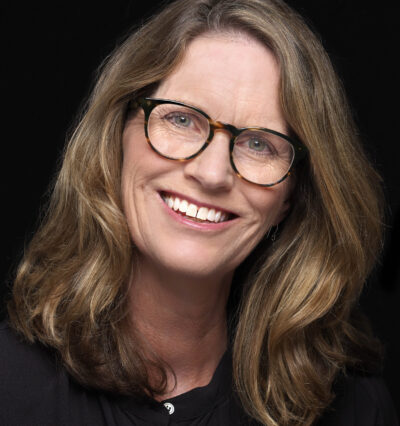Planning to Prepare Your Legacy: 7 Steps to Begin Sharing Your Legacy
Planning to Prepare Your Legacy: 7 Steps to Begin Sharing Your Legacy
If you’ve been around my blog for awhile, you know why I’m passionate about helping people prepare a practical and spiritual legacy: first, my father died in 2017, leaving very little guidance about his wishes despite the fact that he knew for two years of his terminal diagnosis; and second, my mother died unexpectedly in 2021, leaving clear guidelines and all of the information I needed as executor of her will. She also left a beautiful spiritual legacy of stories, values, and wisdom in a number of forms—grandmother’s journal for the kids as well as boxes of memorabilia she kept for them, cards I sent her, and stories about topics like her favorite memory of me.
In the past two years, though, I’ve discovered a new impetus for my desire to prepare my own legacy, especially my spiritual one—grandchildren. As I’ve enjoyed the privilege of rocking four precious newborns, I see their intense eyes gazing up at me, and I almost hear their questions: tell me about this world, Zizi, tell me about God, tell me about who I am, and tell me about who these other people are.
Despite my passion for legacies, though, I have procrastinated writing and recording the stories I want to tell them. So I am beginning the year with some planning and hope you will join me. Even if you don’t have children or grandchildren, you have people in your life who will be blessed by your legacy, both practical and spiritual. Why not make some specific goals for preparing these legacies as the year begins?
1. Pray about your goals.
As you do so, ask the Spirit to give you a vision for what you would like to have accomplished on this day in 2024. You might want to write your vision as a story of what you will have done and how you will feel about it. Consider these examples:
“I will have seen the lawyer to update my will. He will have helped me think through the hard decisions, and it is done. I feel such a sense of relief to have made the changes I needed to make.”
Mine says, “I will have created a 24-page book on Mixbook that weaves together my favorite stories of redemption with some stories and photos from my childhood. It won’t be comprehensive, because I know I can always do another one. I will feel excited to share these books with my children and grandchildren.”
2. Spend thirty minutes making appointments on your calendar to work on your legacy.
Consider setting regularly scheduled times for working on your goals. I find that if I schedule thirty minutes to an hour to work on something, I often spend more time doing it than I originally planned. I just need the event scheduled to get me going.
Add deadlines, false and real, to get things done. I might want to print the books as Christmas gifts for my family, so I would need to set a goal to work monthly on the book and to finish by late October.
3. Set mini-goals.
If I wrote, “I will finish the entire book by late October,” my plan would be doomed to fail because it would be too overwhelming, and I would quit.
Instead, I might set the goal, “Write one redemption story in January, February, and March. Gather lists of verses in April. Gather photos in May and June. Write prayers in July. Edit and put together in August and September.”
You might write, “Find a lawyer in January. Make an appointment in February. Spend March, April, and May doing any research needed and making final decisions. Revisit the lawyer in June. Receive final copy of new will in August.” (And you’d be done four months early, so you could spend the last four months recording some favorite stories.)
4. Expect resistance.
Whenever we make plans to enjoy and glorify God in specific ways, we can expect resistance. Author Steven Pressfield nails the heart of resistance:
“Resistance’s goal is not to wound or disable. Resistance aims to kill. Its target is the epicenter of our being: our genius, our soul, the unique and priceless gift we were put on earth to give and that no one else has but us.”
Pressfield’s definition of resistance reminds me of Peter’s description of the devil, who “prowls around like a roaring lion, seeking someone to devour” (1 Peter 5:8). Whenever we make plans to multiply God’s glory, the devil will seek to destroy our mission.
Armed with faith, the remembrance of how God has helped us in the past; hope, the vision of the joy we will experience when we share our legacy; and love, the blessing of others with the gift of our legacy, we can move forward.
5. Consider the obstacles.
Once we’ve recognized and named resistance, we can go on a seek and destroy mission with the obstacles. What’s keeping you from completing your goals? Make a list, trying to be very specific.
For example, one of the reasons I have not been recording my spiritual legacy is that until I wrote this article, I didn’t have a clear idea of what I wanted it to be. I had a Grandmother’s Journal I didn’t like the look of, so I never wrote in it. Maybe you aren’t visiting the lawyer because you don’t know a good estate lawyer. Or maybe you don’t want to work on your binder of important information because it makes you sad to think about the day your loved ones might need it.
When we name our obstacles, we more easily find ways to overcome them. Writing this article helped me clarify a vision for a final product and to name that I will still want to create more books along the way. You might ask your friends at church or on social media for the name of a good lawyer. You might have coffee with a friend and talk about the sadness you feel as you try to prepare your legacy.
6. Get help.
God made us to be dependent on him, and he made us to grow in the context of the body of Christ. Reach out to family and friends to help you overcome your obstacles. Consider enrolling in the self-paced Organizing Your Life and Legacy workshop, or contact me to discuss life and legacy coaching. We all need cheerleaders to spur us on as we move toward our goals.
7. Be gracious with yourself.
You may have wonderful plans, and you may be making your way toward reaching them when you get a phone call that your mother has fallen and broken her hip. Suddenly, all of those Saturdays you had planned to work on your practical or spiritual legacy need to be spent helping your mom around her house. Recognize the divine interruption, and embrace the opportunity to serve your mom, trusting that the Spirit will provide another way and time for you to prepare your legacy.
As always, I’d love to hear from you. What’s your motivation for preparing your legacy? What goals do you have for the coming year? What obstacles are you facing? You can share in the comments or email me here.
Elizabeth Reynolds Turnage is a life and legacy coach, author, and speaker who helps you live, prepare, and share your practical and spiritual legacy. She recently published the book, Preparing for Glory: Biblical Answers to 40 Questions on Living and Dying in Hope of Heaven (affiliate link). Contact Elizabeth or find more resources at www.elizabethturnage.com

Elizabeth Reynolds Turnage
Elizabeth is a life and legacy coach who offers gospel-centered wisdom and equipping to help you live, prepare, and share your life and legacy.
Subscribe now to get free coaching tips from Elizabeth to help you with your aging, caregiving, legacy, and end-of-life.




